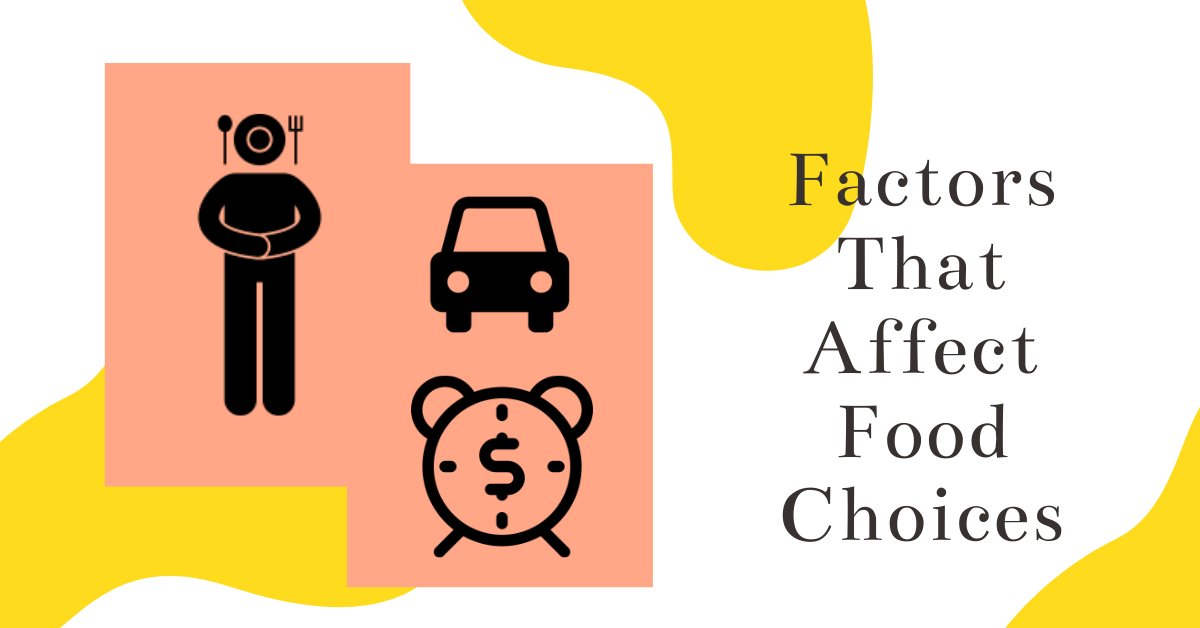Consider for a moment the way in which you make food choices. On a weekend, after a relaxing day, you may be more motivated to purchase healthy food items, take the time to prepare and cook them, and create a tasty and balanced meal with due consideration of the factors that make the meal a good choice. Now, imagine the same scenario, but after a long workday. You come home tired, starving, and don’t feel like cooking. You immediately reach for some chips you may have stashed in your pantry and grab your phone to order a quick and cheap meal to get delivered home through UberEats. Alternatively, you might pick up some a quick fast food from a take-out place you see on your drive home. There are many influences that affect of our food choices but here are the few key factors:
1.) Biological Factors = An individual’s innate taste preferences and satiety (fullness) from food. This is often influenced by culture and lifelong eating habits that are developed from childhood.
2.) Social Factors = Preferences in food choices can be highly influenced by family tradition, the eating habits of your friends, and peer pressure in professional environments.
3.) Economic Constraints = An individual’s socioeconomic status can often play a large role in their food choices. Higher income is often correlated with greater access to nutritious foods, while a lower income is often correlated with reliance on cheaper and more processed food.
4.) Environmental Factors = A person’s access to shops and other food sources may strongly influence what they choose or are able to eat. Transportation can often be an issue with many individuals either unable or unwilling to travel further to locate better food options.
While there are numerous resources to help an individual determine what constitutes a nutritionally “balanced meal,” factors like the ones mentioned above, extend beyond our knowledge of “what to eat” and “what not to eat” and influence the food we eat everyday. Economic constraints and our social lives can often play a far greater role than what we may have anticipated and ignoring our body’s evolutionary desires for certain types of food could lead to an unhealthy relationship with food.
At the end of the day, your dietary choices have to reflect the type of lifestyle YOU are capable of achieving long-term. So take, some baby steps, and get ready to make the incremental changes you need to help your mind and body feel healthy and happier 🙂
